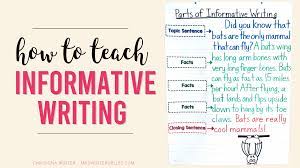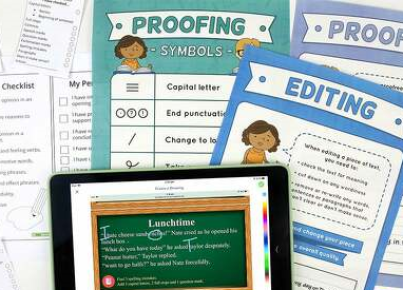The art of informative writing is a fundamental component of educational curriculum across all grade levels. It is imperative for students to learn how to convey information clearly and accurately, as these skills are critical in both academic and real-world settings. This article will provide tips for teaching informative writing and suggest strategies for unit planning to help educators mold competent writers.
Teaching Tips for Informative Writing:
1. Start with the Basics
Begin with the concept of the 5 Ws – Who, What, Where, When, and Why. Encourage students to gather comprehensive information covering these aspects before they begin writing.
2. Emphasize Clarity and Precision
Teach students to be clear and precise in their language. Encourage them to avoid ambiguity by using specific terms and definitions that can aid the reader’s understanding.
3. Show Examples
Use exemplar texts as models. Analyze well-crafted informative pieces with your class, pointing out effective techniques employed by professional writers.
4. Teach Organizational Skills
Provide lessons in structuring an informative piece, including an introduction, body paragraphs each covering one aspect or detail, and a concise conclusion.
5. Incorporate Visual Aids
Train students to enhance their writing by including charts, diagrams, and photographs to complement their text and support their explanations or descriptions.
6. Focus on Revision
Make the revision process an integral part of writing practice. Have peers review each other’s work for clarity, coherence, and organization.
7. Use Writing Prompts
Create activities that incorporate prompts aligned with real-world scenarios or academic content areas, which can encourage students to engage more deeply with the task of informative writing.
Unit Planning Strategies:
Week 1-2: Introduction to Informative Writing
– Activities: Understanding ‘5 Ws’, identifying features of informative texts.
– Homework: Write a short paragraph on a familiar topic incorporating the ‘5 Ws’.
Week 3-4: Developing Skills
– Activities: Lessons on clarity and precision in writing; vocabulary exercises.
– Homework: Write an informative piece describing a scientific concept or historical event using new vocabulary learned.
Week 5-6: Structure and Organization
– Activities: Organizing ideas using outlines; analyzing text structures in sample essays.
– Homework: Compose an organized outline for an informative topic selected by the student; write a draft based on the outline.
Week 7-8: Incorporating Visuals and Revision Techniques
– Activities: Lessons on selecting appropriate visuals; peer revision exercises.
– Homework: Produce a draft of an informative essay with accompanying visuals; participate in peer revision.
Week 9-10: Real-world Application
– Activities: Writing prompts related to current events or cross-curricular subjects (e.g., Science or History).
– Homework: Final project – research and write an extended informative paper on a topic approved by the teacher with multiple sources cited.
By integrating these teaching tips within a structured unit plan, educators can guide their students towards becoming more effective informative writers who are adept at explaining topics with clarity and coherence across various subjects.





